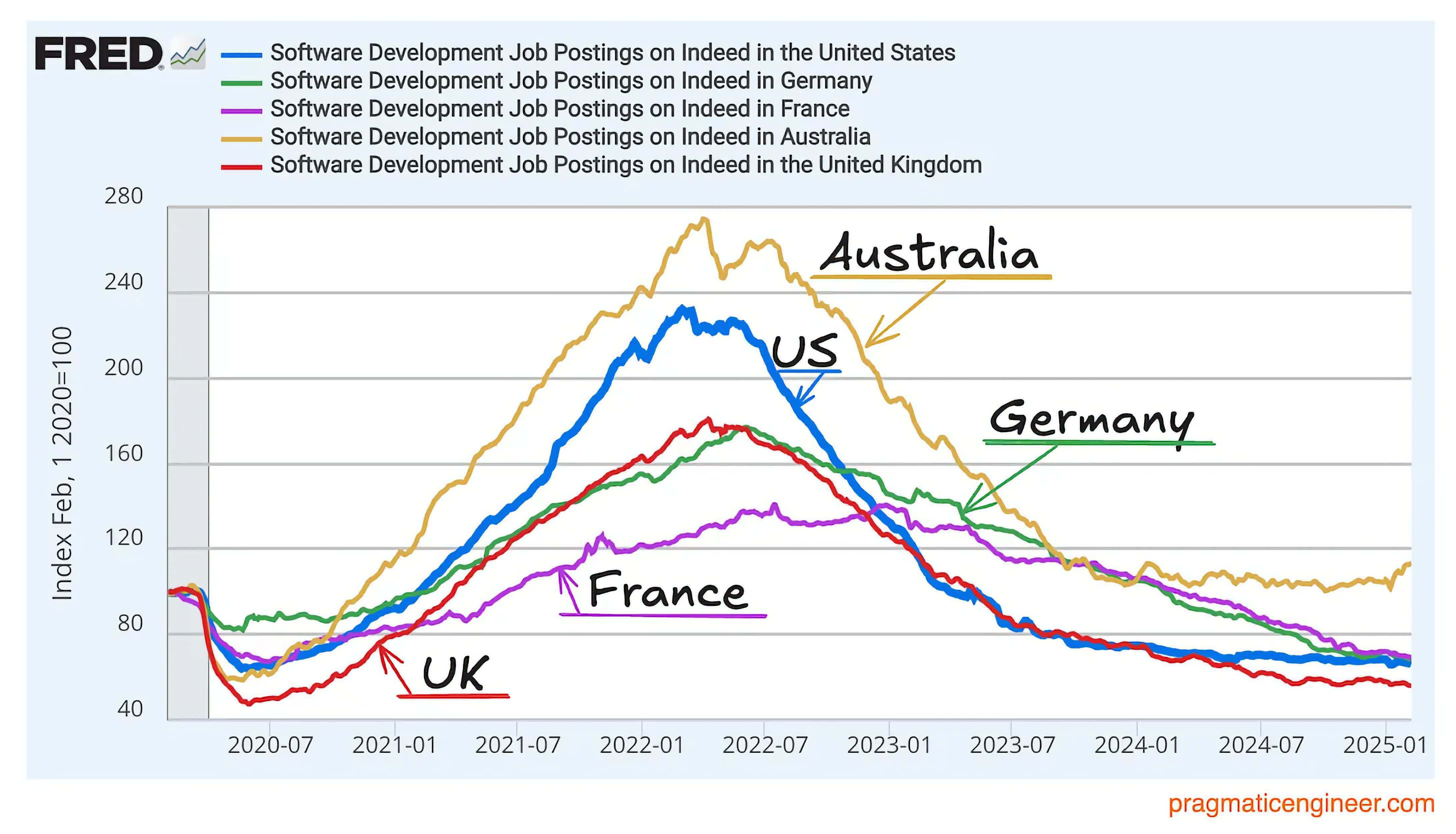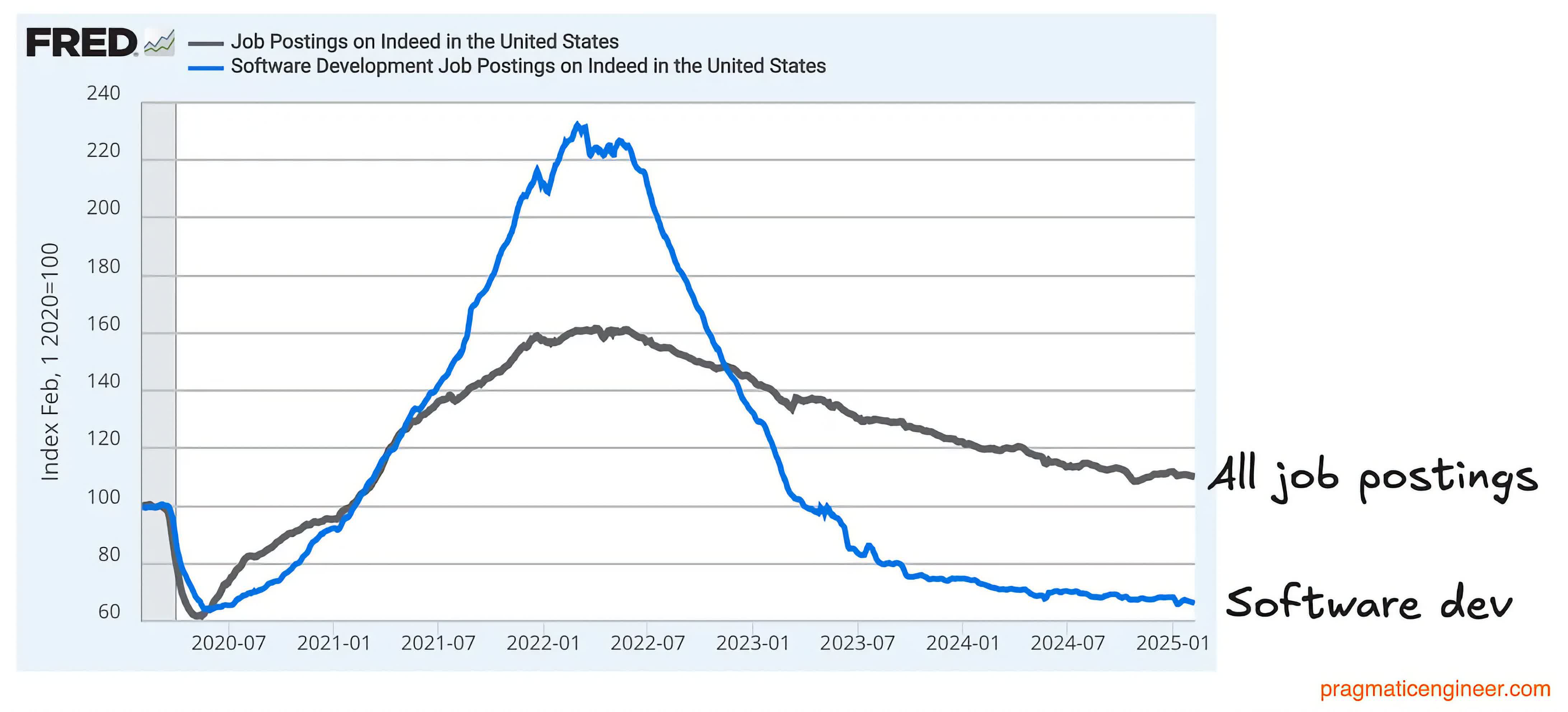Cutting corners: The software engineering job market has experienced a significant downturn, with job openings hitting a five-year low, according to an analysis of data from Indeed by Practical Engineer. The statistics reveal a stark 35 percent decrease in software developer job listings compared to five years ago, marking a dramatic shift in the industry's employment landscape.

This decline is particularly noteworthy when compared to other sectors. While the overall job market has seen a 10 percent increase in listings since February 2020, software development positions have plummeted. This contrasts sharply with growth in areas such as construction (25 percent), accounting (24 percent), and electrical engineering (20 percent).
The software development sector has also experienced very volatile fluctuations in recent years. Job listings more than doubled during the pandemic-era boom of 2021 and 2022, outpacing all other industries. However, this surge was followed by an equally dramatic fall, with current vacancy numbers 3.5 times lower than their mid-2022 peak.
Trend in software development job postings in various countries
- Indeed.com data as compiled by Fred / Practical Engineer
Several factors contribute to this decline. The end of zero-percent interest rates has had a significant impact on the tech industry, affecting hiring practices, venture capital funding, and the survival of tech startups. However, this alone doesn't explain the hiring slowdown and layoffs at highly profitable Big Tech companies like Microsoft, Meta, Amazon, and Google, according to author Gergely Orosz.
He posits that many companies may still be adjusting after over-recruiting in 2021-2022, leading to a more cautious approach to hiring.
Additionally, the rise of generative AI and LLMs may be influencing the job market. These technologies have shown particular promise in coding – 75 percent of engineers reported the use of AI coding tools in a recent survey. Some speculate that companies might be adopting a "wait and see" approach, assessing the potential productivity gains from these tools before expanding their engineering teams.

Salesforce's recent decision to keep its software engineering headcount flat while reporting a 30 percent productivity gain from AI tools exemplifies this trend. However, this also raises questions about product development and market fit, as the company simultaneously plans to hire additional salespeople.
The emergence of highly efficient small teams at companies like Linear and Bluesky challenges traditional notions of engineering team size. These companies have achieved significant user bases and product adoption with remarkably small engineering teams, suggesting a potential shift toward leaner, more efficient development processes.
All job postings on Indeed vs software development job postings
- Indeed.com data as compiled by Fred / Practical Engineer
Orosz also points out that Indeed's data may not provide a complete picture of the job market. The platform may be losing popularity for posting software engineering jobs, particularly among startups and some Big Tech companies. For instance, Microsoft lists more software-related jobs on its own site than are reflected in Indeed's data.
So, while the Indeed data should be considered directionally correct, indicating a genuine decrease in developer job listings, it may not fully represent hiring trends in startups or accurately track Big Tech hiring. Still, it is clear that the software engineering job market is undergoing significant changes, influenced by economic factors, technological advancements, and evolving company strategies.
Software engineering job openings hit 5-year low amid industry shift

